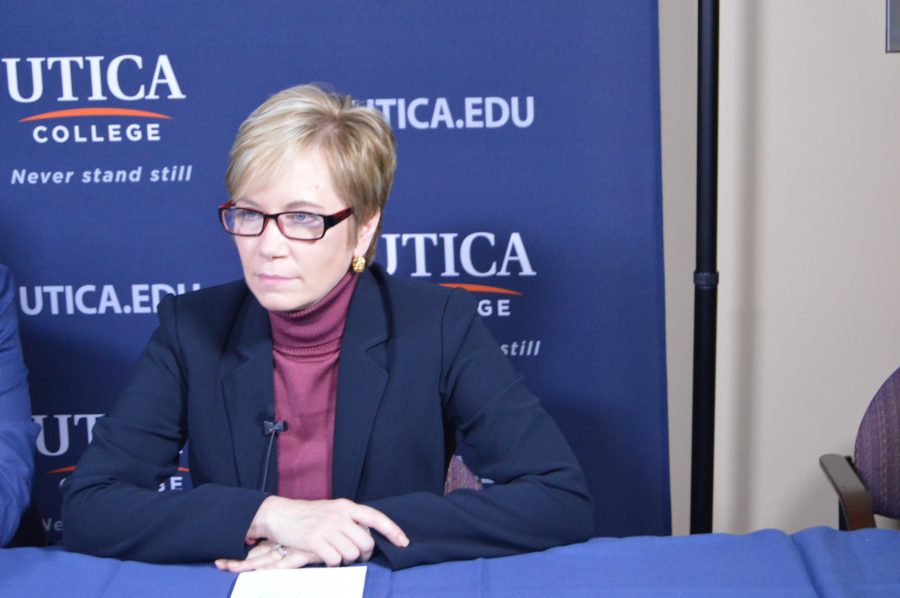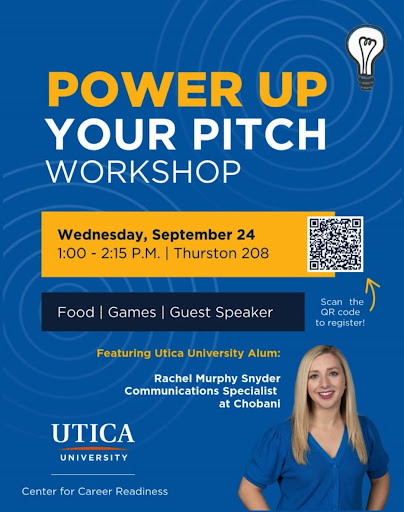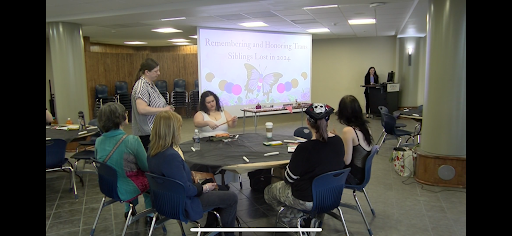Matt Rogers, Co-Editor-in-Chief
When Laura Casamento was announced as Utica College’s ninth president on Feb. 8, many faculty were not among those celebrating. For months, certain professors have been vocal in their assertions that someone with a more academic background be selected as president.
Following Casamento’s selection, The Tangerine set out to interview professors across campus. Of the approximately 20 faculty members that were asked to voice their opinion, 18 of them gave no comment.
Scott Smith, a professor of psychology at UC for 25 years, was not one of them. He spoke clearly and deliberately about some of the concerns that faculty had with the decision.
“I believe there was some concern in relation to ways in which her experience at the college might not have led to her having as clear an understanding of what we might like, or what the academic side of the house does,” he said. “She has expressed some interest in getting to know the faculty and developing an appreciation and understanding of what professors do and how we do it. That would be very important.”
Smith went on to say that clear lines of communication were of the utmost importance. He noted that while it is easy for the administration to call meetings and listen to faculty concerns, it is another thing for them to take those ideas and do something about them.
“If you’re running an organization, you need to know what all the levels think,” Smith said. “It’s also really important to have a sense that there is clear communication and some transparency with what’s being done with that communication.”
Linda Zee, a Spanish professor for 18 years at UC, was quick to point out that Casamento was not the faculty’s top choice.
“I was really disappointed when I first heard,” she said. “It’s a done deal so now I have to live with it.”
However, Zee said that since that initial disappointment, she and her fellow faculty members have started to think a little differently about the decision.
“Once we got over the initial shock, we started thinking a little more rationally,” she said. “She has to get to know us, and we need to get to know her.”
In an interview on the day of the announcement, Casamento did acknowledge that she hadn’t been able to develop those relationships with faculty with her current job, but vowed to set up a “listening tour” to get to know the faculty and their concerns better.
“I think I need to get out there to talk to faculty about what does scholarship mean in each of their disciplines,” Casamento said. “What are the five to ten key attributes that they can tell me about scholarship at their discipline and could we maybe fund more professorships? Could we find ways to increase faculty development? So those are the things that I need to do on the faculty end. I do have enormous respect for the faculty. Enormous respect.”
Smith made it clear that no decision will ever receive 100 percent satisfaction, but if the process is done in an open and honest manor, the faculty will get behind Casamento.
“If it’s fair and respectful, then you can support the organization,” he said.
While it appears Casamento has work to do in terms of earning faculty support, both sides recognize that it will take an honest effort from all constituencies.
“She’s going to need our help,” Zee said. “And we need to give it to her.”








































































































































